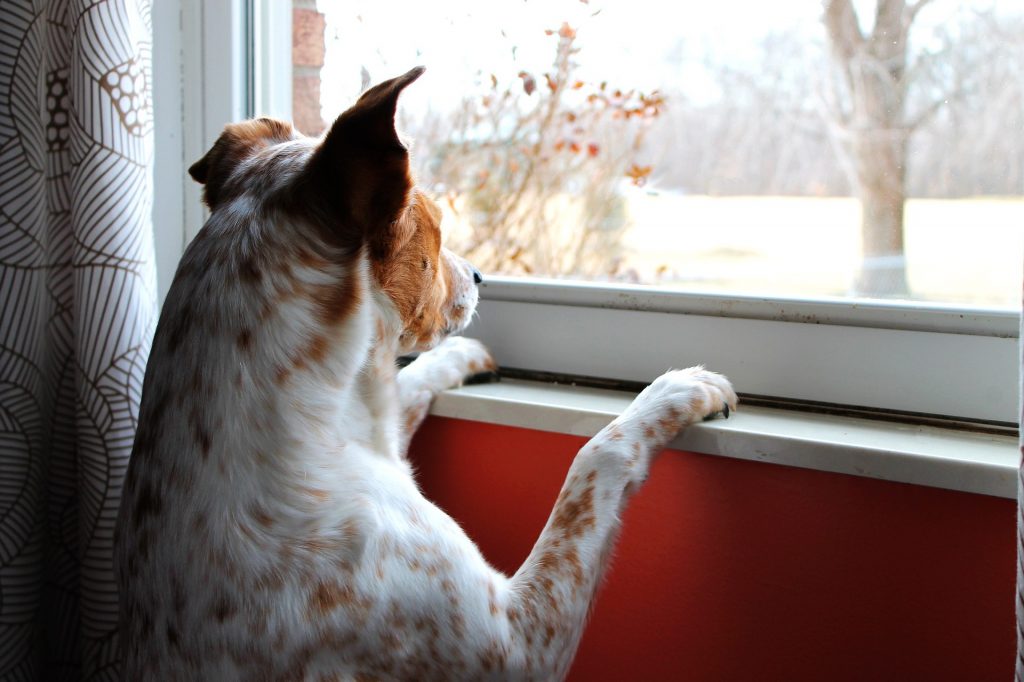How has lockdown affected our dogs?

I touched on the subject of lockdown and our dogs awhile back. I was interested in reading a piece by The Dogs Trust ((Christley et al., 2021)) published in Animals. It makes some interesting points. Although it is based on a questionnaire covering the first lockdown during March-May 2020, it nevertheless, is worth reading.
This piece of work looked at the implications in Spain for householders and looked at how lockdown would affect lifestyle, emotional health, financial and physical health. It considers the impact, specific to dog owners, worldwide on the changes related to the human-animal bond. Of importance, for me, here is the potential effect on our dogs.
During lockdown/s there are potential short-term changes for our dogs
- reduced exercise
- reduced social contact with dogs/humans while walking
- reduced time at home alone away from humans
- reduced ‘quiet’ time away from people
All of which may lead to long-term canine welfare problems such as increased reactivity to dogs/people and, an increase in separation-related behaviour (SRB).
Three main areas are focused on: dog walking practices, interactions with people/dogs and enrichment activities (play, etc).
During a lockdown, dogs were left at home much less frequently and for much shorter periods.
Walking practices changed, markedly. Over half had been walked once or less per day, 36% twice a day and 11% three or more times a day. Dogs are creatures of habit, therefore any change in their patterns can affect them.
There were significant changes in how many other dogs were met during the day. Some of the reasons for this:
- walk location was changed to avoid meeting other dogs
- increased lead walking preventing dogs from meeting others
- if off the lead, there was a tendency to keep dogs to heel
These practices meant owners were preventing their dogs from interacting normally. For instance, no sniffing or play or, being allowed to meet another dog who may have been of lead.
From an enrichment point of view, some owners gave a dog a toy but did not play with them. Others and this is where dogs have a better experience, gave their dogs toys AND played with them – a much better experience for our dogs.
Three-quarters of the respondents reported changes to the dogs’ daily routine. Changing a dogs’ routine can result in frustration, anxiety and attention-seeking behaviour. This is a major stressor for many dogs.
Some owners and I’ve met quite a few of these, avoided meeting other dogs or people for fear of getting the virus from touching another dog. There is no scientific evidence that this is the case. Actually, in my view, being careful not to touch your face or allow dogs to lick your face, and ensuring you wash your hands properly is the best practice.
Lockdown resulted in a reduction in the daily frequency of walking dogs. Indeed quite a few dogs were not walked at all. This, in my opinion, presents the problem of risking our dogs losing their social skills resulting in behaviours such as reacting to other dogs, fearful behaviour with dogs/people – I have seen instances of both of these quite a few times.
Because during lockdown, many dog owners have kept their dogs on leads or restricted them to walking off the lead but closely to heel. This, of course, reduces human and dog interactions. This was reported by 60% of the owners. The researchers speculate that when dog-dog interaction resume there may likely be increased levels of dog-dog reactivity.
Being restricted on a lead also reduces the dogs’ opportunity to sniff – scent is a key mode of communication for dogs.
Changes in the home environment were identified – a topic I have discussed before:
- working from home means dogs are less likely to be left alone in the house
- reduced opportunities for the dog to rest apart from humans
- unable to have ‘quiet’ time
- stress-related behaviour when a dog has to be left alone
- this will require desensitization (gradual and progressive separation from the owner)
Certainly, as lockdowns continue, in the difficult times we live in it is important to think, carefully, about the welfare of our dogs. If we fail to do this, I fear many dogs will need the assistance of a canine behaviourist like me to help our dogs to get back to their ‘normal’ lives.
Contact me if you have any concerns about your dog during lockdown.
Reference
Christley, Robert M., Murray, Jane K., Anderson, Katharine L., Buckland, Emma L., Casey, Rachel A., Harvey, Naomi D., Harris, Lauren, Holland, Katrina E., McMillan, Kirsten M., Mead, Rebecca, Owczarczak-Garstecka, Sara C. and Upjohn, Melissa M. (2021), Impact Of The First COVID-19 Lockdown On Management Of Pet Dogs In The UK. Animals, 11(5): 3 to 26. available at https://dx.doi.org/10.3390/ani11010005 [21 January 2021].
